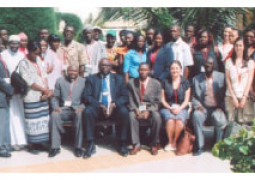Women in The Gambia have a lot to celebrate in terms of empowerment, but they also have a long way to go.
Overall, there has been progress in the promotion of gender equality and women’s empowerment in this country. This is so, especially in areas such as education.
However, much remains to be done, since many of our women are battling with poverty, which has tended to hinder their effective empowerment.
While a good number of our women are claiming to be more empowered now than in the past, many more of the women folk in this country continue to live in very unfortunate living conditions.
Like in other African countries, The Gambia has adopted numerous universal treaties and conventions.
However, the translation of these commitments into national policies and laws is yet to yield substantial advancement on gender equality on the ground.
Despite our national and international commitments, progress has been slow in overcoming gender imbalances, and gender-based violence affects many of our women and girls, who continue to fall victim.
Gambian women continue to serve as the driving force behind the country’s agriculture and could play a vital role in finding solutions to the country’s food crisis, if they are involved in all aspects of food security deliberations and policy making, but are most often ignored by the decision-makers.
Most women have no ownership of farm- land, yet they still serve as bread-winners in many households.
Sadly, because the vast majority are illiterate, most women in the country do not know the contents of the new Women’s Act, and other national and international instruments that protect them.
What is the Women’s Bureau doing in this regard? Surely, it needs to do more to create greater public awareness of the new law.
As a country, if we really want to empower all Gambian women irrespective of who they are and where they live, we must revisit our approach and commit more time and resources to their cause.
Women’s contribution to nation-building is immense and, therefore, they deserve a better deal, with support from the government and development partners, as well as the society in general.




